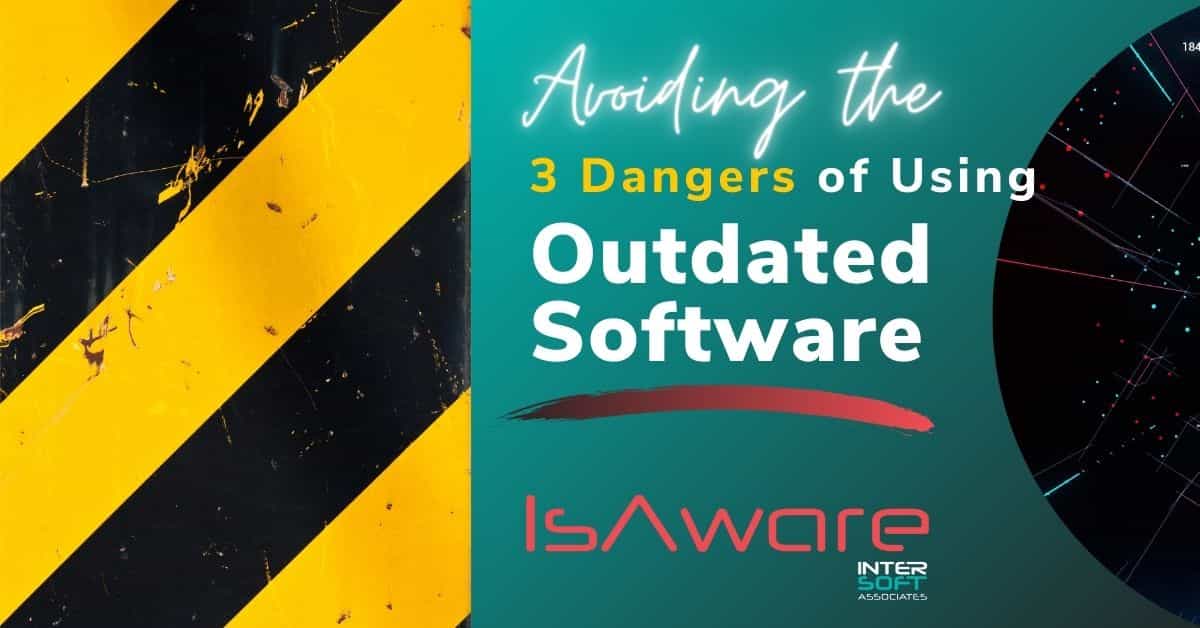With outdated technologies usually comes outdated software, which can put your company at risk for security breaches, data loss, and lost productivity. Even if you are running on modern technologies you can still be at risk if your software has not been modernized for a period of years (usually 5 or more). In this article we will explore these dangers in-depth, including how the customer experience can be compromised when old technology is still running mission-critical aspects of a company. If you have not updated software (or hardware) at your company for some time, perhaps as a cost-savings tactic, this article will shed light on just how expensive some mistakes can be.
Security Risks of Outdated Software
The combination of outdated software with outdated technology can be a disaster when it comes to security, putting data and data integrity at risk. Those looking to exploit security issues often first target outdated systems or older systems that have not yet applied security patches. Some of these are no longer supported and have no updated security patches to provide to their customers.
Outdated systems can be easy targets for two reasons: The first, obviously, is that the lack of security makes for easy intrusion – a thief prefers an unlocked home to one with a state-of-the-art security system. Secondly, intruders are counting on the user’s lack of attention. If it’s been this long and they still haven’t updated systems, the thinking goes, they’re less likely to notice an ongoing breach.
Compounding these issues is that the more time goes by in an outdated system and outdated software, the harder it can be to find somebody familiar with the old technology who can patch security holes. Those that are developing security protocols are spending their resources on new and emerging threats. Particularly when software or systems have reached “end of life” – they are no longer being supported by the developer – it can be difficult to find and hire a developer with the experience and skills to manage the legacy software in need of update.
It is important to remember that security issues related to outdated systems might not be limited to your own systems or networks. Viruses designed to attack old systems will look for and spread to other outdated systems. Breached databases on an old system can steal important data. Not only are you and your company’s systems at risk, your customers and their data can become threatened. For example, a third party vendor working with Volkswagen left important customer data unsecured for nearly two years, exposing sensitive information of nearly 90,000 Audi customers or prospective buyers. Even though it was a third party vendor’s security fail, its customer, Volkswagen, experiences the public fallout and responsibility with its customers.
Data Loss and Legacy Software
Three key concepts illustrate how outdated platforms and systems put an organization at increased risk for data loss.
First, as we’ve explored, older software doesn’t have the modern services to protect data actively or passively. If data protection requires manual intervention, instead of automation, like many legacy systems do, it’s more likely that protection won’t be applied.
The second concept to consider are the protections embedded in software. We had a personal experience with an eye doctor still using Windows XP in 2021. When we asked why he never upgraded, he explained he didn’t want to spend the money on upgrades. Meanwhile the doctor lost older health records and important health data. He had to rely on handwritten notes.
This may be needless to say…this doctor is now our former provider. Not only did he lose data, he lost a customer – probably more than just one.
A third idea to consider isn’t about data loss, but about lacking the ability to retrieve critical data in the first place. We’ve explored before the ideas and advantages of leveraging Big Data in your business. With older systems and legacy software you might simply be technologically incapable of retrieving new points of data and making them actionable. Here the “cost of not” becomes an issue; in thinking of cost savings in not investing in updated systems there’s a real opportunity loss to what could be improving efficiencies, experiences or processes with modern systems -not to mention opportunities for new revenue.
Lost Productivity Due to Outdated Software
It’s not just outdated software, but incorrect software, that can slow productivity in an organization. It is not uncommon for even large organizations to run critical operations through tools like Excel spreadsheets or a Microsoft Accessdatabase. Even when “powered-up” with automations and sophisticated macros, there comes a point where spreadsheets just are no longer the right tool for the job. Tasks can be difficult to do or take much longer to complete. Difficult or time consuming tasks deeply impact how well business processes can run. Moreover, the proper controls and data histories cannot be adequately maintained. If a problem arises, it will be extremely difficult to recover – especially if it takes days to notice.
This speaks to the essential value of periodic touchpoints to ultimately eliminate the opportunities for software to even become outdated. At InterSoft, part of our custom software development process involves continuous consultation to better understand shifting needs and evolving demands. We are always on the lookout for a better, easier way of doing things, or where security can be strengthened. When inefficiencies can be identified in nearly real time they can be more easily remedied. This means lost productivity as a matter of “habit” doesn’t have an opportunity to take root.
The Advantage of Consultancy
Not every “old” piece of software needs replacing. There can be legitimate, practical, important reasons to continue using legacy software. An important question is: Are those reasons well understood and regularly explored?
It’s important to ask for expert advice to understand how outdated software could be limiting your business’s opportunities or impacting your competitive advantage. We have decades of experience with legacy software and legacy software modernization, and will be happy to explore your situation and how upgrades and updates might benefit you most.






